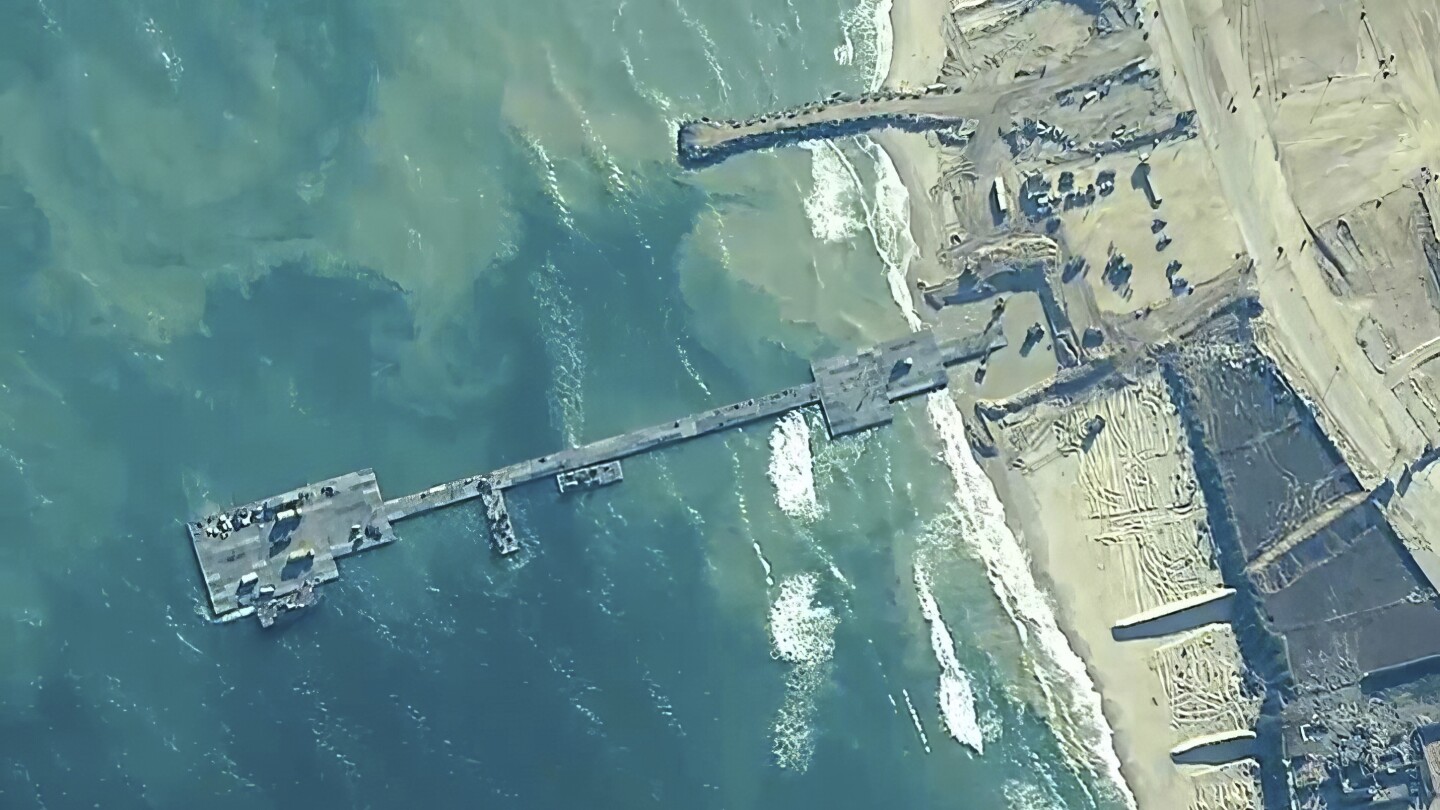WASHINGTON (AP) — The director of the U.N. World Food Program said Sunday the program has “paused” its distribution of humanitarian aid from an American-built pier off Gaza, saying she was “concerned about the safety of our people” after what had been one of the deadliest days of the war there.
Saturday saw both an Israeli military assault that freed four hostages but left 274 Palestinians and one Israeli commando dead, and, Cindy McCain said, two of WFP’s warehouses in Gaza had been “rocketed” and a staffer injured.
Sunday’s U.N. announcement of the pause appears the latest setback for the U.S. sea route, set up to try to bring more aid to Gaza’s starving people.


The bottleneck is getting supplies from water to the beach. Why do they even need to be going to warehouses in the first place, much less ones where fighting is happening? Can’t they just drive the stuff down the shore to the south, and dump them off there?
I mean, maybe you get people appropriating them and selling them or using them for power games within the aid-needing place – that’s happened before with aid, opening of Black Hawk Down shows exactly that taking place – but end of the day, it’s probably still going to someone in Gaza, yes?
It seems pretty safe to say that any distribution of aid is preferable to no distribution.
I’d presume the aid comes off the pier on vehicles that are not meant for the distribution.
But cutting the distribution center would likely still not resolve the issue. Israel would just bomb the aid distribution vehicles directly as they have done in the past.
You gotta have a distribution network the same way the heart needs arteries, veins, and capillaries. Without a delivery network, that aid won’t go more than the distance some people can walk. The elderly and children would never get it. Those in other cities might not get it. Not to mention how heavy water is. Most can’t carry enough for a family of five each day, in a different city.
The warehouses allow them to coordinate food/water/first aid/etc and send it on trucks to distribution centers where it can be distributed equally without stampedes, or the healthiest/most well armed simply taking everything.